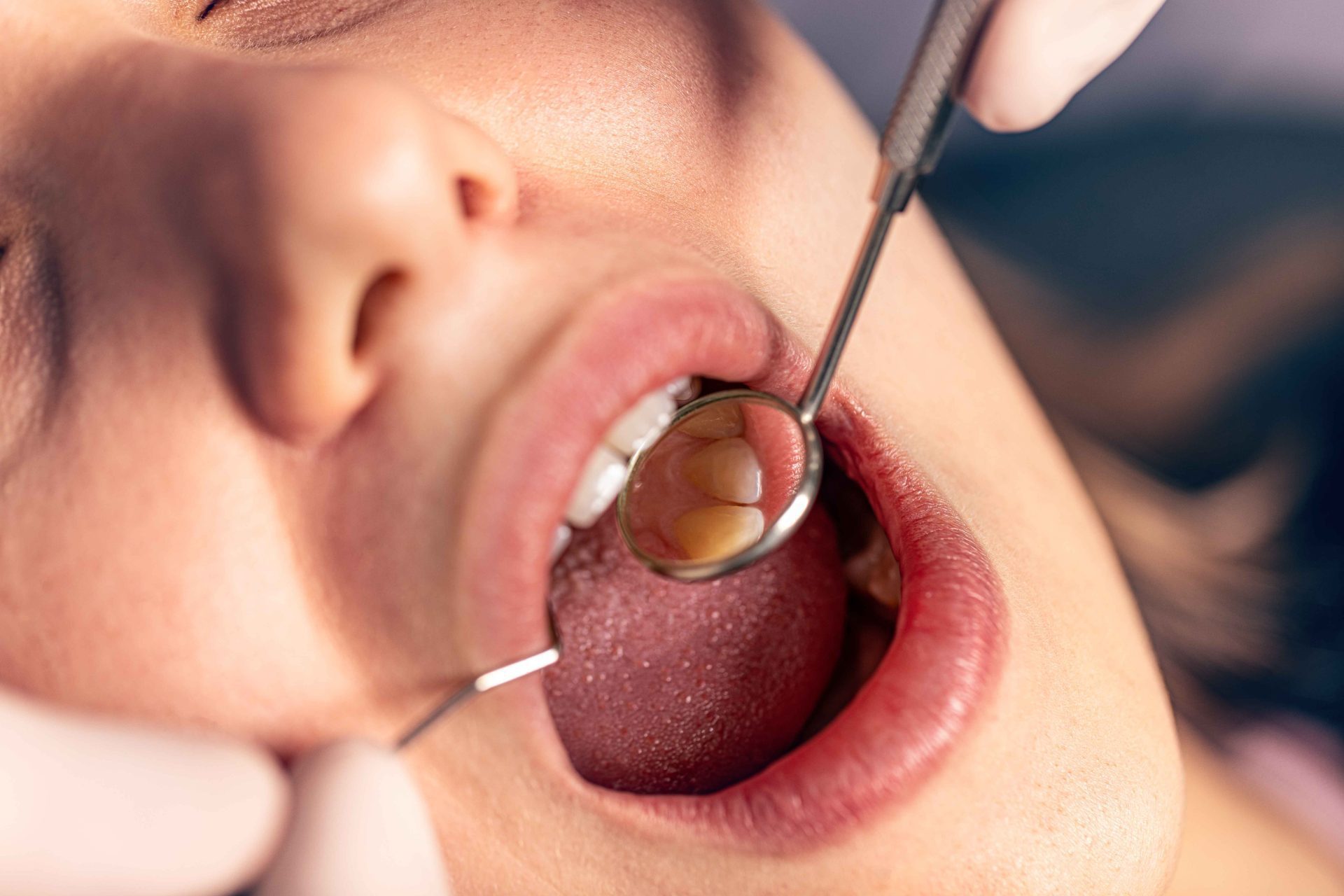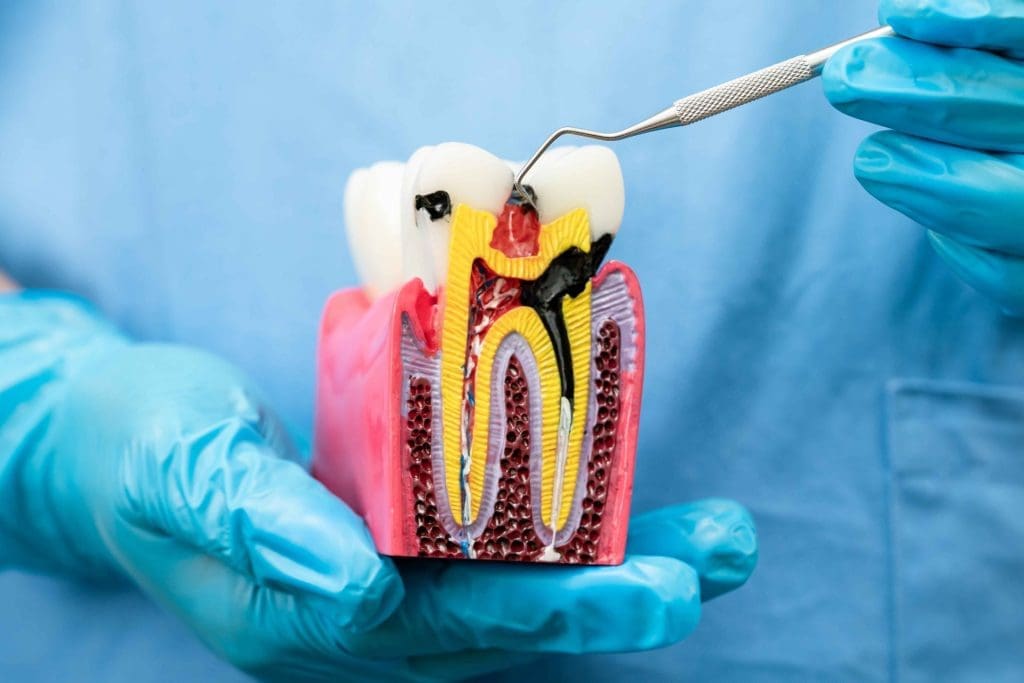Understanding Cavities: The Basics You Need to Know
Cavities are among the most common dental problems, affecting people of all ages. Simply put, a cavity is a permanently damaged area on the hard surface of your tooth, caused by bacteria, acid, and plaque buildup. Over time, untreated cavities create small holes that can grow larger, causing pain, infection, and, ultimately, tooth loss.
At Enamel Dental Penticton, our experienced Penticton dentists stress that cavities are progressive—they won’t heal on their own. Early detection and treatment can save your tooth and reduce the need for complex dental procedures.
How Long Can You Leave a Cavity Untreated Before It Gets Worse?

The question “how long can you leave a cavity untreated” doesn’t have a one-size-fits-all answer. The timeline depends on factors such as:
- The location of the cavity – Cavities on chewing surfaces or between teeth can progress faster.
- Oral hygiene habits – Regular brushing and flossing can slow down decay but won’t stop it.
- Dietary habits – A diet high in sugars and acidic foods accelerates decay.
However, most cavities progress through their stages within months if untreated. A small cavity that could have been addressed with a simple filling might turn into a severe infection requiring a root canal. At Enamel Dental Penticton, our Penticton dentists recommend addressing cavities as soon as they are detected.
The Stages of a Cavity: From Early Signs to Severe Decay
Cavities follow a predictable progression:
- Early-stage cavity: White spots form on the enamel. This is the easiest stage to treat.
- Enamel decay: The enamel starts to break down, and pain may occur.
- Dentin decay: The cavity reaches the dentin, causing heightened sensitivity.
- Pulp infection: Infection reaches the tooth’s pulp, causing significant pain.
- Abscess formation: Infection can spread to surrounding tissues, posing serious health risks.
- Tooth loss: In severe cases, tooth extraction may become necessary.
Each stage brings increased discomfort and costlier treatments. At Enamel Dental Penticton, we emphasize catching cavities at the early-stage cavity phase to minimize treatment complexity.
The Risks of Leaving a Cavity Untreated

Many people ignore cavities if they aren’t causing pain, but this can have serious consequences:
- Increased sensitivity and toothache
- Bacterial infections that spread to gums and jawbone
- Abscesses that may require emergency dental care
- Higher treatment costs due to advanced interventions like root canals or extractions
- Potential impact on overall health, including heart disease risks
At Enamel Dental Penticton, our Penticton dentists remind patients that untreated cavities are not just a dental issue—they can lead to broader health concerns.
Common Signs and Symptoms of a Cavity
Detecting a cavity early can make treatment easier and less invasive. Look out for these signs and symptoms of a cavity:
- Tooth sensitivity to hot, cold, or sweet foods
- Persistent toothache or pain when biting down
- Visible holes or dark spots on your teeth
- Bad breath or an unpleasant taste in your mouth
If you notice any of these signs, it’s time to visit Enamel Dental Penticton for an evaluation. Our Penticton dentist team uses advanced tools to detect cavities early and recommend effective treatment plans.
What to Do if You Think You Have a Cavity

If you suspect a cavity, here’s what you should do:
- Schedule an Appointment: Contact Enamel Dental Penticton as soon as possible.
- Maintain Good Oral Hygiene: Brush twice daily with fluoride toothpaste and floss regularly.
- Avoid Sugary and Acidic Foods: These can worsen decay.
- Use Over-the-Counter Pain Relief: Temporary relief can help manage discomfort until your dental appointment.
Remember, cavities don’t go away on their own. Early treatment is crucial.
Preventing Cavities: Your Best Defence
While cavities are common, they are also preventable. Our Penticton dentists recommend:
- Brushing your teeth twice a day with fluoride toothpaste
- Flossing daily to remove plaque between teeth
- Limiting sugary and acidic foods
- Visiting Enamel Dental Penticton every six months for routine cleanings and check-ups
Good habits, combined with professional care from Enamel Dental Penticton, will significantly reduce your risk of cavities.
Cavities are common, but they should never be ignored. If you’ve been wondering “how long can you leave a cavity untreated,” the answer is simple: not long.
Schedule your appointment with Enamel Dental Penticton today. Let our skilled Penticton dentist team provide you with the care and guidance you deserve.

